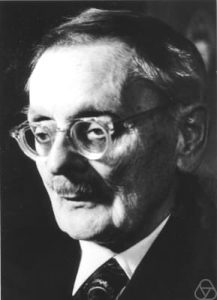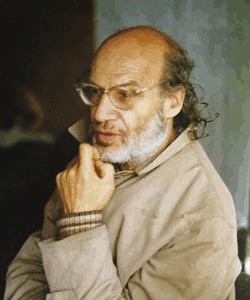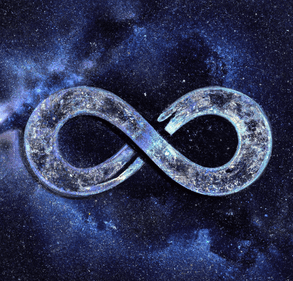Naive set theory or “potato science” is the natural (and understandable!) foundation of mathematical science.
“I know what time is. If you ask me, I don’t know anymore.” Augustine.
This insightful quote from Augustine emphasises that there are concepts that we understand intuitively, but which we cannot explain: they are ‘primitive’ concepts, whose intuitive apprehension precedes anything that can be said about them. In mathematical science, there are three (types of) primitive concepts: numbers (natural numbers : (0,1,2,3,ldots)), sets (the notion of a set), and objects (a concept that is not specifically mathematical, but also philosophical).
1.Does anyone have the science of potatoes?
When I was a graduate student in mathematics, I took a course in algebraic geometry. The professor asked us in the first session: “Can anyone tell what a set is? As far as I was concerned, it has never been explained to me”. As a budding logician, I had an answer to the question: a set is a point of a universe of ZFC set theory (if the reader doesn’t understand, that’s normal!). I didn’t dare say it, unsure of the reaction of my classmates. In the deafening and embarrassed silence, the teacher then drew two or three rough ellipses on the board, representing sets (of knowledge: each one represented a domain of mathematics), and gave us the following definition: “For me, a set is a potato“. Of course, everyone laughed (a little : it was the French “Ecole Normale Supérieure” after all).
With hindsight, I think I understood his definition: like time for Augustine, sets are for mathematicians a primitive, intuitive notion, and no kind of theory can replace the intuition we have about them. My own answer, in a sense valid, of course, was only a mathematical refinement of the interpretation of sets as a plurality, through a definition of what a universe of sets is; but it said nothing about what a set is. In the end, I don’t completely regret having kept my mouth shut.

Ernst Zermelo, German logician and mathematican
2.Why should we define what a set is?
Why should we be able to define what a set is? After all, mathematics is mainly concerned with numbers, geometric shapes and forms, functions, space, etc. The problem is that although we “feel” that all these objects are part of the same science, we do not see directly what they have in common. Even the notion of number, which makes it possible to count finite quantities, or to measure magnitudes, was only able to integrate these two dimensions, arithmetic and geometry, through the creation of real numbers, which are moreover conceived and understood as a set.
In fact, the theory of sets, which we owe essentially to Georg Cantor (19th century), has made it possible to unify mathematical science: the latter studies certain sets or certain objects which are represented as sets. This theory thus provided a universal conceptual language for mathematical science, and a rigorous method. In mathematics, everything is now described using sets. This does not mean that they are the only mathematical objects, but that they occupy a special place in the theory, just like the natural numbers (see What is a natural number ?).
In this respect, in arithmetic, for example, not only individual numbers are studied, but also and above all the properties of sets of numbers, and in particular of the set of natural numbers. In plane geometry, the plane is conceived as a set of points and Descartes’ method, which consists in introducing coordinates of these points, makes it possible to represent these and all the geometric objects of the plane (and of space…) from “copies” of the set (mathbb R) of real numbers. In analysis, the usual functions like (exp, ln, cos, sinldots) are in fact relations between sets, that is to say sets themselves (at least they can be represented as such).

Georg Cantor, German mathematician
3.How is set theory “naive”?
For these reasons, it is necessary to understand sets, which are now used ubiquitously. Sets can be described, constructed, combined… but they do not do so in any way, and it is necessary to specify the rules that allow them to be “manipulated”. This is what naive set theory does, where “naive” means “intuitive”, not “candid”. It is indeed thanks to the elementary intuition of sets and their properties, understandable by everyone – even non-mathematicians – that this theory is built. However, and curiously enough, if it is possible to say many things in this theory (which serves as a framework for all mathematical theory, even mathematical logic and the axiomatic theory of sets, the one in which lives the answer I did not dare to give), it never gives us a definition of what a set is: we are, like time, supposed to know it. Naive set theory therefore specifies our intuition, through definitions, postulates…
This way of doing things is not unique in mathematical science: we can no more really define a natural number (at least mathematically, there are interesting philosophical definitions) than a set, and arithmetic admits that we know what it is: we then study their set, that is to say we study them all together, globally. Similarly, if we can ‘construct’ or ‘define’ a set of real numbers (the geometric line), this tells us nothing about what a real number is (although we can represent such a number, again as a set!). Perhaps this is why Bertrand Russell, mathematician and philosopher, said that mathematics is the science where we don’t know what we are talking about…. However, unlike the natural numbers, the reals, the points of the plane… we cannot speak of a “set of all sets”: this leads to a logical paradox, named after the famous Russell.

Bertrand Russell, British philosopher, mathematician and logician
4.Can we do better than potato science?
Yes and no. Naive set theory is based on the intuition of the notion of set, and is inevitable in modern mathematical construction; the use of symbolism, derived from mathematical logic and very convenient, does not change anything. This does not prevent it from being represented, like other mathematical theories, by a “formal” theory, in which mathematical objects represent language: here we are in formal mathematical logic. This mathematical logic is very useful, and first of all in that it allows us to adopt a mathematical approach to the theory of sets itself: this is the subject of “axiomatic” set theory (of the first order, let us say), which allows us to define certain objects and to demonstrate certain facts inaccessible to naive set theory.
But it cannot, any more than the other fundamental logical theories, replace naive set theory, because it is based on the elementary logical theory called “predicate calculus”, which is itself based on naive set theory. It is therefore not possible to base mathematical science in an ultimate sense on the (formal) axiomatic theory of sets, any more than on the theories of categories, types, etc. Mathematical quarrels about the foundations of mathematics are therefore, in our opinion, vain, unless they are mainly about naive set theory. To which we must add a nuance: what can be done in formal mathematical logic can be done more simply with stronger hypotheses that do not require any logical formalism. This is the case with the theory of “second-order” universes of the famous mathematician Alexandre Grothendieck, and with the theory of sets known as “MacLane’s set theory”, another famous mathematician. One can also work directly with categorical “universes” that behave like the category of sets: this is topos theory, started by the same Grothendieck. But this is another story.

Alexandre Grothendieck, French mathematician
In short…
We cannot, without doubt, define what a set is. But why should we, since we already know it? Intuition is enough, and anyone can therefore understand naive set theory without being a mathematician, and all the logic that is needed to approach all modern mathematical science. The contribution of modern mathematical logic even makes all this quite clear, which is very good news for anyone who wants to undertake to understand mathematics.

0 Comments